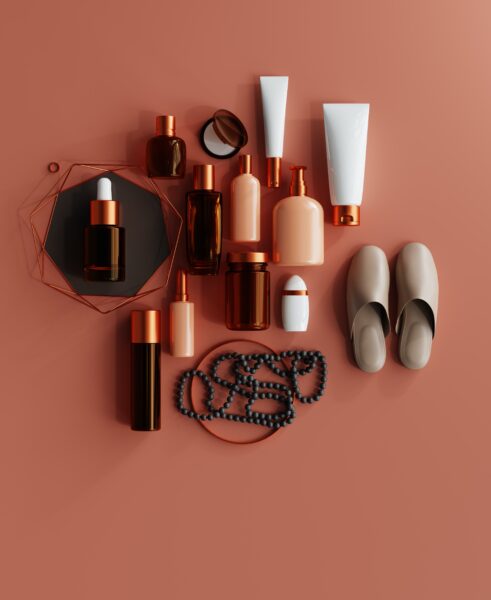
The irony of modern wellness culture dawned on me one morning as I watched my mother christen her day by knocking back a shot of collagen powder. She grimaced as she swallowed the fishy elixir, determined to keep down the shot-sized promise of an eternal youthful glow. I wondered if this daily battle was really conducive to her wellbeing, or a product of anti-aging culture masquerading as a wellness hack.
The booming wellness industry, now worth $5.6 trillion, has taken social media by storm after the pandemic saw a global shift in attitude towards holistic health. With a population desperate to fortify its immune system, many people turned to the wellness sector that poised itself to put both stress and disease into remission if one fail swoop with a plethora of superfood supplements and fitness programmes. Harnessing the power of online platforms, the industry often preys on women’s anxiety by marketing items with little proof of efficiency under the guise of natural health. With constant messaging that their bodies need to be fixed, and often feeling dismissed by their doctors, women are the prime market for anything with the word “cleanse” at the end. However, the quickfire ads rarely have any intention of explaining the nuances of the toxins that they claim to flush out.
While it is important to note that a nutritious diet and regular exercise are essential for our wellbeing, the commercialisation of our life satisfaction threatens to undermine the positive intentions behind the World Health Organisation’s guidelines. The industry relies on an ever-dissatisfied customer chasing an ideal of complete self-optimisation that is not only impossible, but completely incompatible with our diverse day-to-day existences. Persistent messaging has created the impression that we are closer to gaining absolute control over our health if we splash the cash; sweeping statements generalised from small studies mean we are often exposed to pseudoscientific claims that suggest we cut out everything other that herbal tea if we want to fight the war on inflammation (you do get the first month free though).
The wellness industry walks a fine line between promoting health and aesthetics whilst creating trends that capitalise on society’s obsession with female perfectionism. Ads that equate wellness to a problematic “aspirational” image allow diet culture to eat its way back in with a fresh new face, sending the message that wellbeing is synonymous with a thinner body. I can scroll through countless lifestyle “reels” a day that feature pricy hauls from young, able bodied, conventionally attractive cis woman, subliminally implying that I am just a scoop of hemp protein away from resembling them in lululemon athleisure. Self-improvement becomes toxic when marketing taps into our feelings of guilt and inadequacy and the criteria for “self-care” slips into the realm of appearance and body manipulation. “Fitfluencers” are quick to plug the latest diet or buzzword to cash their paycheck, but often lack the credentials to back up their claims about your gut microbiome.
The wellness industry walks a fine line between promoting health and aesthetics whilst creating trends that capitalise on society’s obsession with female perfectionism.
With the inevitable New Year propaganda on the horizon, it is crucial that we educate and empower ourselves as consumers. Now is the perfect time to think intuitively about which wellness practices are realistic for you, as not everything can be manifested into existence, and not every daily activity can be optimised! Getting a good night’s sleep and managing stress levels is vital within a “hustle culture” that can often leave us feeling unsuccessful if we haven’t meditated, oiled and juiced before 7am. For the Tik-Tok generation, it is important to remember that likes and followers don’t equate to quality advice, and to consult a trained professional when it comes to your diet and nutrition. It’s great to seek inspiration, but it is necessary that we broaden our perspectives: explore how people of all ages, backgrounds, abilities and body types are practicing wellness and, hopefully, we can contribute to cultivating a more representative and better-informed wellness space for women.


